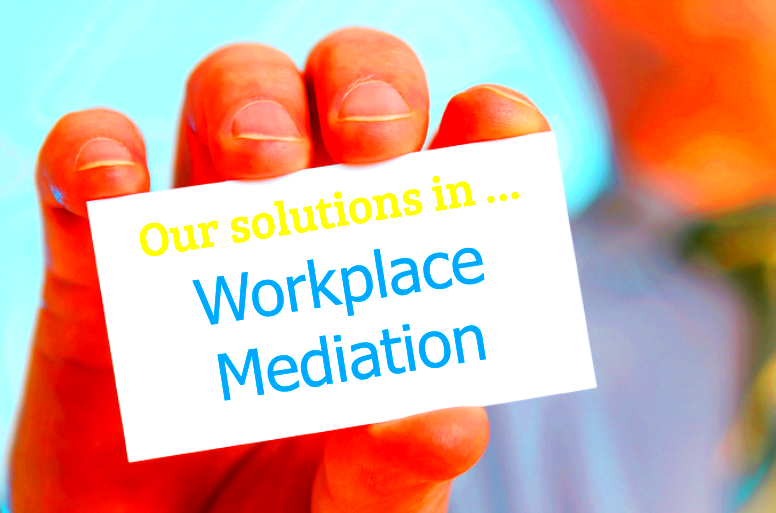Employment Law Mediation and Resolving Workplace Disputes
Employment law mediation is a process where a neutral third party, called a mediator, helps employees and employers resolve their disputes without going to court. This approach is often less formal and can lead to quicker resolutions. Mediation is especially useful in workplaces where relationships matter, as it encourages open dialogue and collaboration. Unlike a judge or arbitrator, a mediator does not make decisions for the parties; instead, they guide the conversation to help both sides find common ground.
Importance of Mediation in Workplace Disputes

Mediation plays a crucial role in resolving workplace disputes for several reasons:
- Cost-effective: Mediation typically costs less than litigation, saving both parties money.
- Time-saving: Mediation can resolve issues much faster than the lengthy court process.
- Preserves relationships: By promoting dialogue, mediation helps maintain professional relationships that might be damaged in court.
- Confidentiality: Mediation sessions are private, protecting sensitive information from public exposure.
- Empowerment: Both parties have a say in the outcome, leading to solutions that are mutually beneficial.
These benefits make mediation a valuable tool for employers and employees facing disputes.
Common Types of Workplace Disputes

Workplace disputes can arise from various issues. Here are some common types:
- Discrimination: Conflicts can occur due to race, gender, age, or disability discrimination.
- Harassment: This includes any unwanted behavior based on protected characteristics.
- Wage disputes: Issues related to unpaid wages, overtime, or misclassification often arise.
- Workplace safety: Disagreements about safety conditions or practices can lead to conflicts.
- Termination disputes: Employees may contest wrongful termination or unfair treatment during layoffs.
Recognizing these disputes early can help in addressing them through mediation before they escalate.
Steps Involved in Employment Law Mediation
Engaging in employment law mediation involves several steps that help guide both parties through the process. Understanding these steps can make the experience smoother and more effective. Here’s a breakdown of what typically happens:
- Preparation: Before the mediation session, both parties gather relevant documents and outline their positions. This preparation sets the stage for a productive discussion.
- Choosing a Mediator: Selecting a neutral mediator is crucial. This person should have experience in employment law and a good reputation for facilitating discussions.
- Initial Meeting: The mediation process usually begins with an opening session where the mediator explains the rules and objectives, creating a safe environment for dialogue.
- Individual Meetings: The mediator may meet separately with each party to understand their perspectives and interests in the dispute.
- Joint Session: Both parties come together to discuss the issues. The mediator helps facilitate the conversation, encouraging respectful communication.
- Negotiation: The mediator guides both sides as they brainstorm possible solutions, focusing on collaborative problem-solving.
- Agreement: If a resolution is reached, the mediator helps draft a written agreement that outlines the terms. This document is often legally binding.
- Follow-up: Sometimes, a follow-up session is scheduled to ensure both parties adhere to the agreement and address any ongoing concerns.
By following these steps, mediation can effectively resolve workplace disputes while preserving professional relationships.
Role of a Mediator in Resolving Disputes
The mediator plays a pivotal role in the employment law mediation process. Their job is to create an environment where both parties can express their concerns and work towards a resolution. Here are some key responsibilities of a mediator:
- Neutral Facilitator: The mediator remains neutral throughout the process, ensuring that neither party feels favored or ignored.
- Guiding Discussions: They facilitate discussions by asking questions, summarizing points, and encouraging open communication.
- Identifying Interests: The mediator helps each party articulate their underlying interests and needs, which can lead to more effective solutions.
- Encouraging Collaboration: By promoting a collaborative atmosphere, mediators help parties focus on shared goals rather than their differences.
- Drafting Agreements: If a resolution is achieved, the mediator assists in drafting an agreement that reflects the terms both parties have accepted.
Overall, the mediator acts as a bridge between conflicting parties, guiding them toward a mutually satisfactory outcome.
Benefits of Mediation Over Litigation
Mediation offers several advantages compared to traditional litigation, making it an appealing choice for resolving workplace disputes. Here are some key benefits:
| Benefit | Mediation | Ligation |
|---|---|---|
| Cost | Generally lower costs, as it avoids lengthy court fees. | Higher costs due to attorney fees and court expenses. |
| Time | Quicker resolutions, often within a few sessions. | Can take months or years to reach a verdict. |
| Control | Parties have more control over the outcome and can craft solutions that work for them. | Outcomes are determined by a judge or jury, limiting parties’ control. |
| Confidentiality | Mediation sessions are private, keeping disputes out of the public eye. | Litigation is public, and court records are accessible. |
| Preserving Relationships | Mediation fosters collaboration, helping maintain professional relationships. | Litigation can create animosity and damage relationships. |
Given these benefits, many individuals and organizations find mediation to be a more effective and amicable way to resolve disputes.
How to Prepare for Employment Law Mediation
Preparing for employment law mediation is essential to ensure a productive and effective session. By taking the time to prepare, both parties can approach mediation with confidence and clarity. Here’s how you can get ready:
- Gather Relevant Documents: Collect any paperwork that supports your position. This may include employment contracts, emails, performance reviews, or policy manuals.
- Clarify Your Goals: Identify what you hope to achieve from the mediation. Consider both your ideal outcome and what you’re willing to compromise on.
- Know Your Rights: Familiarize yourself with relevant employment laws and regulations that apply to your situation. This knowledge can empower you during the discussions.
- Practice Your Points: Outline your key arguments and practice articulating them clearly. This preparation will help you communicate effectively during mediation.
- Consider Possible Solutions: Think creatively about potential resolutions that could satisfy both parties. Being open to various options can lead to a better outcome.
- Stay Emotionally Prepared: Mediation can bring up strong feelings. Take some time to manage your emotions and approach the session with a calm mindset.
- Consult a Lawyer: If possible, seek advice from an employment lawyer. They can help you understand your rights and what to expect during mediation.
With these steps, you’ll be better equipped to navigate the mediation process and work towards a positive resolution.
Frequently Asked Questions about Employment Law Mediation
Many people have questions about employment law mediation. Here are some common queries and their answers to help clarify the process:
| Question | Answer |
|---|---|
| What is mediation? | Mediation is a voluntary process where a neutral third party helps employees and employers resolve disputes through open dialogue. |
| Is mediation legally binding? | If both parties reach an agreement, the mediator can help draft a legally binding contract outlining the terms. |
| How long does mediation take? | The length of mediation varies, but most sessions last a few hours to a full day, depending on the complexity of the dispute. |
| Can I bring a lawyer to mediation? | Yes, parties can bring legal representation to mediation to help them understand their rights and negotiate effectively. |
| What if we don’t reach an agreement? | If no resolution is found, you can still pursue other options, such as litigation or arbitration. |
Understanding these aspects can help you feel more prepared and confident heading into mediation.
Conclusion and Final Thoughts on Mediation
In conclusion, employment law mediation is a valuable process for resolving workplace disputes in a constructive and amicable way. It offers numerous benefits over litigation, such as cost-effectiveness, confidentiality, and the preservation of professional relationships. By preparing adequately and understanding the mediation process, both employers and employees can approach mediation with a positive mindset and a willingness to collaborate.
Ultimately, mediation is about finding common ground and working towards solutions that benefit everyone involved. With the right preparation and mindset, mediation can lead to meaningful resolutions that restore harmony in the workplace and help avoid the stresses of court proceedings. So, if you find yourself in a workplace dispute, consider mediation as a proactive step toward resolution.


